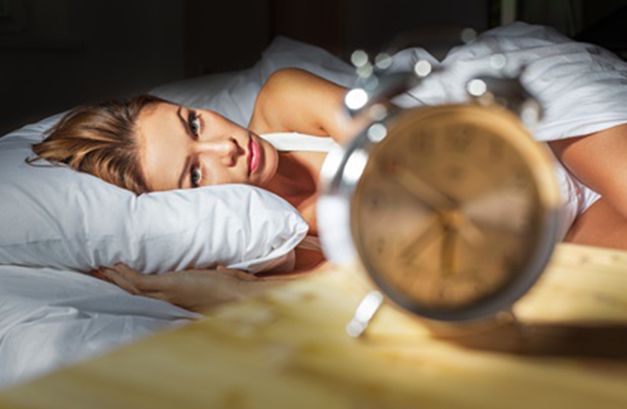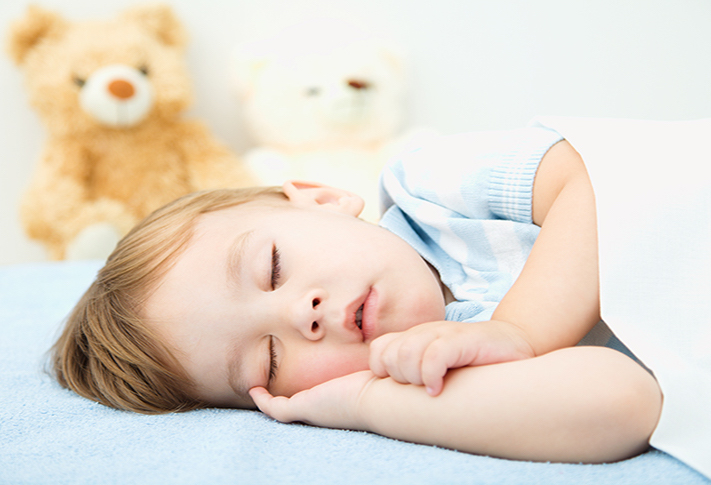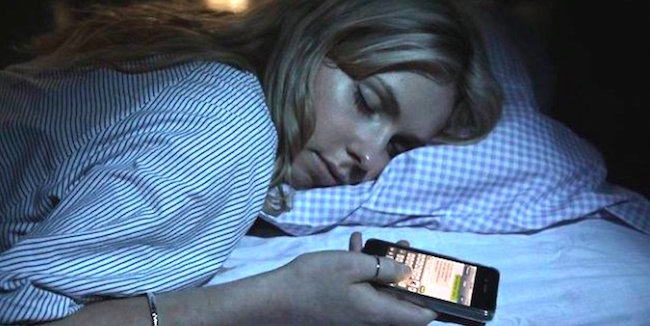Sleep is incredibly important to your well-being but how much sleep do you really need? Without it, you can become moody, be unable to think clearly or function well, and struggle to get through the day.
Sometimes, caffeinated products like coffee, tea or soda can help you get a small boost, but it won't be enough to get you through the day, and frequently, the crash afterwards can be even worse than the initial tiredness. Getting a good night's sleep is just about the only way to make sure you feel happy, healthy and alert.
The number of hours people need to sleep can be highly individualised, but for the most part, there is a range for each age group that will allow people to get the amount of sleep they need to feel well-rested the next day.
This article is going to help you find the amount of sleep that is likely to work best for you, as well as provide some information on how you can improve the quality of the sleep you get. By the end, you should have a pretty good idea of what you can do to get a good night's sleep every night.

Factors Affecting How Much Sleep You Need
Several factors can play a role in how much sleep you need, and what quality the rest you get is. When you're thinking about whether or not you're getting enough sleep, there are a few questions that are important to ask yourself.
The first is whether or not you feel that you are healthy and able to be productive throughout the day. Are you ready to maintain your level of productivity on 7 hours of sleep, or could it be that you need more?
Another factor to keep in mind is your overall health. Sleep can sometimes be related to health issues such as being overweight or at risk for diseases. Getting a good night's sleep can lead toward a healthy cycle that can keep those diseases at bay. It's not uncommon for those who are overweight to oversleep.
If you deal with this and are looking for ways to reach a healthy weight, getting the right amount of sleep in combination with a healthy diet can be immensely helpful.
If you find that you're having problems sleeping, you may need to find a way to address those issues. The tips for getting a better night's rest, explained later in this article, can help you to address those issues.
If you find that they don't, for example, if you suffer from a high level of insomnia regardless, then it may be wise to speak to a professional. They can help you to get the rest you need by offering more helpful tips or perhaps a prescription to help you sleep if you are determined you need one.
Substances that help to keep you awake throughout the day can often disrupt your sleep even when you think the caffeine has worn off. Things like coffee, soda and energy drinks need to be used in moderation and not near bedtime. The earlier in the day that you consume these drinks, the less likely they may be to affect your sleep.
However, it is best if you don't consume caffeine at all. There are more natural ways that you can try to gain more alertness throughout the day. For example, exercise is a great way to give yourself a boost during the day.
Another critical factor to look at comes by asking yourself if you feel tired while driving. Frequently, driving becomes a habit that doesn't always require an active mind. However, if you find your attention drifting off while you drive, it can quickly become dangerous.
If you do struggle with being sleepy while driving, it is exceedingly important to find an answer to the problem. It can only take a few seconds for an accident to happen due to a lack of alertness.
Different Sleep Needs at Different Ages
How Much Sleep Do Kids Need?
People of different ages need different amounts of sleep. It’s common knowledge that babies need a lot more sleep than adults. For example, newborns who are no more than three months old typically require somewhere between 14 and 17 hours of sleep.
They spend very little time awake during the day, and most of that time is spent eating and growing. Once they reach three months, they only require somewhere between 12 and 15 hours of sleep. This lasts until they have reached 11 months. At the toddler ages of one and two, the amount of sleep they require goes down yet again, to 11-14 hours.
Once children have reached the age of pre-schooler, they only require 10-13 hours of sleep; this is why many pre-schoolers can sleep as long as their parents and then enjoy a nap at some point during the day. From ages 6 to 13, only 9 to 11 hours are needed.
A lot of this reduction in the need for sleep can be related to growing. As the growth in children slows, they don't need as much sleep. By the time they have gotten to the teenage years of 14 to 17, they get pretty close to the number of hours adults need. Teenagers only require 8 to 10 hours per night.

How Much Sleep Does An Adult Need?
Adults 18 and older tend to need about 7 to 9 hours of sleep. This section is broken up into three smaller sections for different adult age groups including young adult, adult, and older adult.
Naturally, each person is going to be a little different depending on their habits and how high the quality of their sleep is. Some people will sleep longer than 9 hours because they tend to wake up a lot, so while they might be in bed for 7 hours, the amount of sleep they get isn't equal to that. Each person is different.
Practical Tips to Improve Your Sleep
There are numerous ways to improve your ability to get to sleep and have that sleep be of better quality.
Stick to a Sleep Schedule
One of the biggest things that can help you get a good night's sleep is sticking to a sleep schedule. This includes a set schedule on weekends, which can be difficult if you like to go out and blow off steam.
The point is that when your body gets used to a schedule, it knows that it needs to calm down for rest at your designated bedtime. Having a routine that you go through prior to going to sleep can also help get you into the mindset that it's time for bed.
Exercise To Improve Sleep
Exercise is a great way to get yourself into a proper sleep schedule. It can help tire your body out so that it can relax easier when bedtime rolls around. Admittedly, it doesn't need to be mentioned that exercise has numerous benefits even aside from helping you to sleep better.
It can help with weight loss, keep mental problems like depression and anxiety in check, and help stave off any unwanted physical diseases you may be at risk of. Overall, exercise is incredibly useful for helping you create a healthy cycle of living and sleeping.Enter your text here...
Sleeping Environment
The state of your bedroom can play a large part in how well you sleep. For you to be able to sleep comfortably, it needs to be at the ideal temperature. If your room is hot, it may help to get a cooling fan or an air conditioner if possible. If it's cold, it may help to add blankets to your bed or find ways to help insulate the heat in the room.
Sound and light in the room can also be disruptive. It's best to sleep without listening to anything and to minimise the lights in the room. Phones, televisions and other electronics can have lighting that disrupts your sleep.
The object you sleep on needs to be at the ideal comfort level for you to sleep well. It's a good idea to have a mattress that suits you best.
The job of a mattress is not just to provide a place to lay down so that you don't need to sleep on the ground, but also to support your spine and allow your muscles to relax properly. If you can, get a mattress that suits your body.
Find the right mattress for your body with our best mattresses buying guide.
Your pillows also need to be comfortable and support your neck and head well. That way, you don't get any kinks or cramps in the muscles in your neck or shoulders.
As mentioned earlier in this article, it's important to keep alcohol and caffeine within limits. They can disrupt your sleep and leave you feeling groggy and potentially even sick the next day.
Limit Alcohol Intake
Many people are familiar with how alcohol can make you feel the following day. While this may not be an issue when used on occasion, it isn't something you want to get into the habit of.
Limit Electronics Before Bed
Electronics can be problematic while you're trying to sleep. Some people like to relax with the television on or while listening to music or podcasts. These things aren't recommended because they continue to stimulate the brain while you're trying to sleep.
This keeps you from getting as much rest as you could otherwise. Sudden loud noises or bright lights from those items can also cause you to wake up, potentially pulling you out of your sleep cycle sooner than you would naturally wake up.
It's also important to keep lights from items you may have charged in the room covered or put away because they can also cause problems while you try to sleep.
Your phone can be especially problematic, as it may be tempting to check the phone at night for messages and other alerts. This can cause your brain to become more alert when it needs to be calm.
Regardless of how you do it or what changes you need to make, it's important to make sleep a priority. Many people put sleep to the side, thinking that just because they may be able to function well enough with a lack of sleep, that they'll be okay.
They often don't become aware of how much it affects them until it becomes a disruption in their daily life, or they become more prone to illnesses or find themselves struggling more with mental issues. Sleep is essential to maintaining your physical and psychological health, as it allows your entire body to relax and de-stress from your day-to-day life.
Making sure you get a good night's sleep is just as important as making sure you exercise or eat a nutritious diet. Doing all three will have incredibly positive effects on your life, and help create a cycle that keeps you feeling great.

Conclusion
Getting the right amount of sleep is exceedingly essential. If you fall behind in it, you can end up dealing with a sleep deficit that can leave you feeling terrible. It's far better to set yourself up for success by getting enough sleep every night so that you can function well and feel alert throughout the day.
Luckily, there are many ways to accomplish that including having a sleep schedule, getting enough exercise and keeping a limit on alcohol and caffeine because they can rob you of sleep.
People often don't think about sleep being as important as it is. Many people push themselves to work hard late into the night or ignore their need for the sake of binge-watching their favourite television show or playing video games. These are all fun or necessary endeavours but should be kept within their limits.
The older you get, the more you will find that it's important to balance all things in moderation, and that includes setting aside the time to get a good night's rest. With the information from this article, you should be on the right track with how many hours of sleep you need.
